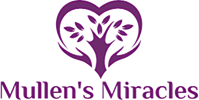Details
The Lifesaving Power of QPR Gatekeeper Training in Today’s Political and Social Media Climate
In a world where political tensions run high, social media arguments can escalate within seconds, and anxiety-inducing news cycles seem never-ending, mental health struggles are on the rise. Many people feel overwhelmed, isolated, or invisible—sometimes right in the middle of a crowded online space. Amid this noise, QPR Gatekeeper Training (Question, Persuade, Refer) has emerged as a quiet but powerful tool that can truly save lives.
At its core, QPR is much like CPR—but for mental health. Instead of training people to restart a heart, it trains everyday individuals to recognize the warning signs of suicide and intervene before a crisis becomes irreversible. The steps are simple: Question someone about their distress, Persuade them to get help, and Refer them to the right resources.
The beauty of QPR isn’t just in its structure—it’s in the empowerment it gives people to act compassionately and confidently when someone’s life may be on the line. In our current political and social climate, that empowerment couldn’t be more vital.
Social media platforms have become battlegrounds of opinion, where misinformation and negativity spread faster than facts or empathy. People, often friends and family members, are often exposed to a constant stream of arguments, outrage, and tragic headlines, creating an environment that can exacerbate depression, anxiety, and hopelessness.
QPR training helps cut through that noise. It reminds us that behind every screen name, there’s a human being who might be silently struggling.
One of the greatest benefits of QPR training is normalizing the conversation about suicide. For too long, society has tiptoed around mental health, treating it as taboo or uncomfortable. QPR teaches that asking someone if they’re thinking about suicide doesn’t “put the idea in their head”—it opens a door. It communicates care, trust, and understanding in a world that often feels judgmental or divided.
The current political climate also adds another layer of stress. From heated elections to polarized debates, many people feel disillusioned or unheard. This emotional burnout can leave individuals vulnerable. QPR gives communities the tools to build bridges in these moments—to move from confrontation to compassion. Whether it’s a coworker overwhelmed by the news, a student dealing with online harassment, or a friend withdrawing from social contact, QPR equips us to notice and respond with humanity.
Another strength of QPR is its accessibility. The training is concise—often completed in about an hour, no more than two hours—and designed for everyone, not just mental health professionals. Teachers, faith leaders, parents, coworkers, and students can all become “gatekeepers,” forming a network of informed and caring people who recognize the signs of crisis early. In a society where people often feel disconnected; and isolation and loneliness are at epidemic levels, QPR restores the sense of shared responsibility for one another’s well-being.
Finally, QPR Gatekeeper Training reinforces something we need more than ever: hope. It shows that small, genuine acts—like asking a question or listening without judgment—can make the difference between despair and recovery.
In this age of social noise and political division, QPR offers a rare antidote: empathy in action. It empowers communities to care more deeply, listen more openly, and respond more wisely. And perhaps most importantly, it reminds us that even in a loud and divided world, saving a life can start with a single compassionate conversation.
We have been honored with a space to host QPR Gatekeeper Training at Phase Family Center. Please feel free to register under the Events page in our community. We will add additional classes as needed. We have saved the date for 3 sessions, October 18th, November 8th, and December 6th, from 9am - 11am.
Let's keep making a difference for mental health, one person at a time.
Much Love,
Kathy

